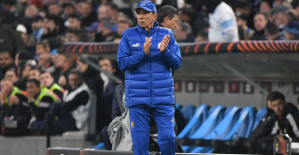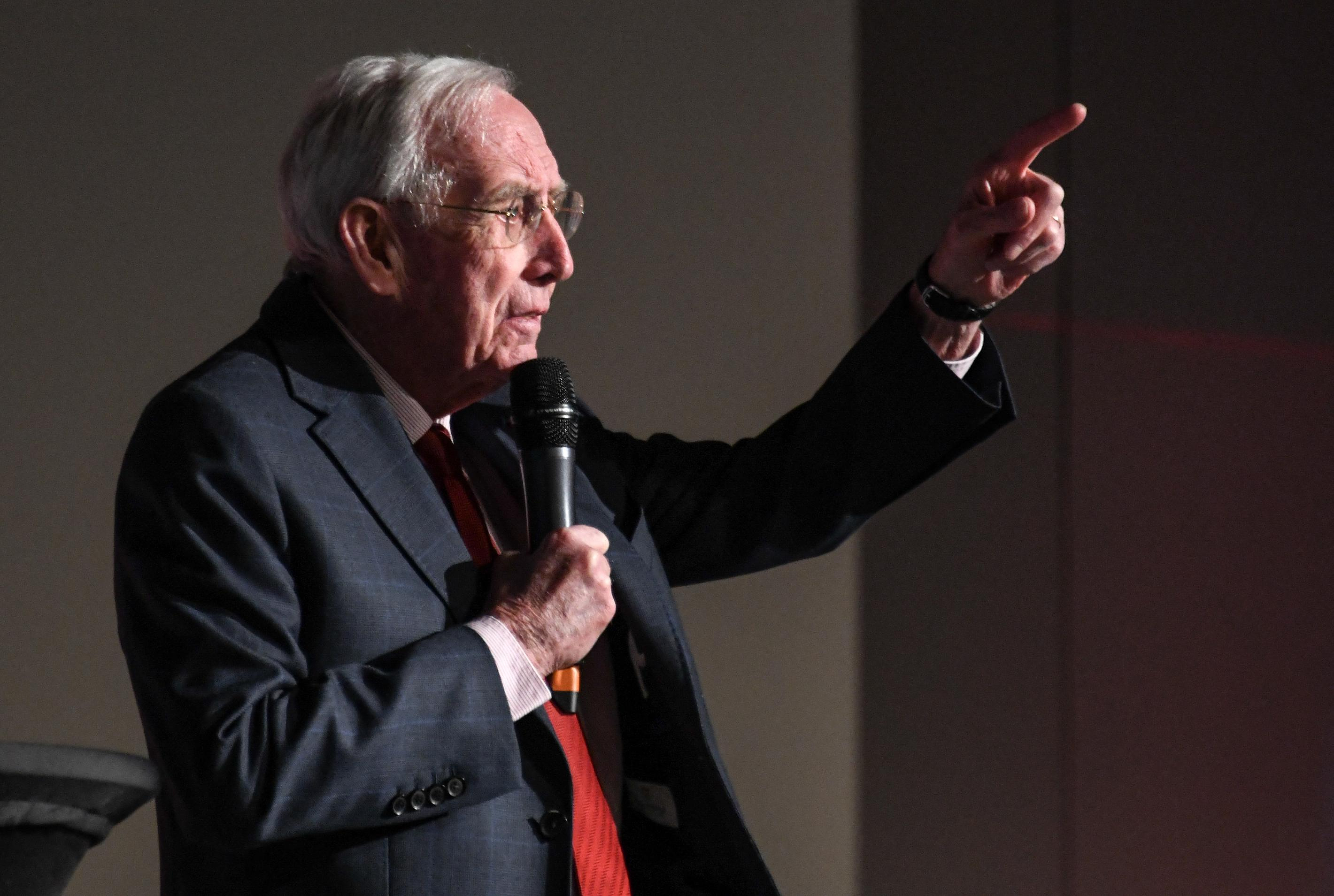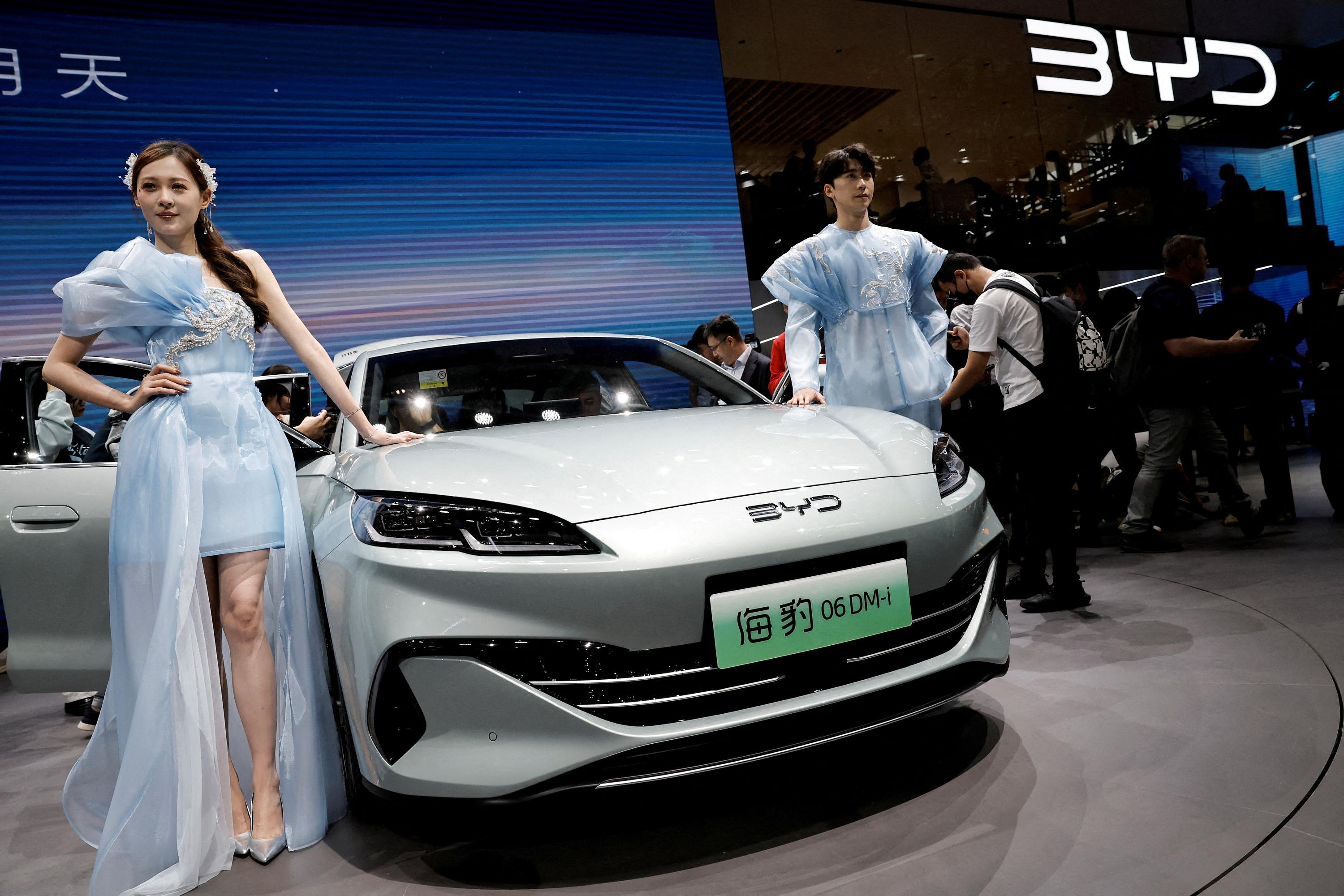Cars are not vehicles, they are standing objects that are not used for an average of 23 hours a day. This could change with electric cars in the future. In addition to their transport duties, private cars in Germany have now taken on a part-time job in the energy supply for the first time.
The power grid operator Tennet uses the storage capacities of several interconnected e-cars to compensate for short-term frequency fluctuations in the grid.
It is a vision from the early days of modern electromobility that Tennet is now realizing in cooperation with the storage specialist Sonnen Gruppe: Batteries from electric cars are connected to a "virtual power plant" with the help of a digital control system, which helps to keep the power grid stable .
However, Tennet does not draw any power from the batteries. There are simply not enough e-cars and charging stations that are suitable for so-called bidirectional charging. For the time being, only a minority of e-cars can feed electricity back into the grid.
Tennet ensures grid stability simply by using the solar wall boxes and power storage to regulate when and how the cars are charged. The system is therefore unidirectional and therefore suitable for all e-cars. The support of the grid "is only achieved via an intelligent charging process," emphasize the companies. Advantage: "There is no additional wear and tear on the vehicle batteries due to discharging."
At the same time, the project of the two companies reduces the risk that the power grid could be overloaded if too many e-cars are connected to the grid at the same time. Because the Sonnen Group is redesigning the charging process for its participating customers: By integrating it into the virtual power plant, the charging processes of all connected electric cars are distributed evenly over a longer period of time.
The company reports that peak loads at a certain time of day are avoided in this way: "The basis for this is the specifications of the customers as to when they need their car again."
Only in the second step are frequency deviations in the power grid compensated for using primary control power. Tennet’s specifications come for this.
Guaranteeing a frequency of exactly 50 Hertz in the line is one of the most important tasks of the network operator. Even the sudden drop to 49 hertz would trigger a large-scale, uncontrollable power failure, known as a blackout. And in the course of the energy transition and the decommissioning of large power plants, maintaining this frequency is becoming an increasing challenge.
All network operators therefore buy in electricity capacities that can be used immediately, the so-called primary control power, in order to be able to prevent the frequency drop at any time. The storage capacity of the e-car batteries that Sonnen offers to the grid operator must be available within 30 seconds and be flexibly adjustable to compensate for load changes. The cars of the participating households continue to be used normally in everyday life.
If all customers of the Sonnen Group participate with their wall boxes, a total of 80 megawatts of primary control power could be made available. The Tennet network, which supplies around 33 million people between the North Sea coast and the edge of the Alps, has a requirement of 170 megawatts of primary control power.
In order to raise the potential, humble beginnings must quickly become something big. Because to start with, the Sonnen Group, which belongs to the Shell Group, only digitally networked the batteries of eleven vehicles. In the next step, however, Sonnen wants to use another 5,000 wall boxes called “sonnenCharger” in the garages of its customers for the virtual power plant.
"We are on the threshold of developing an ecosystem of renewable energies that can be compared to the beginning of the internet age," says Sonnen boss Oliver Koch.
"The integration of e-cars into the power grid is an important milestone in being able to react to the challenges of future power availability," says Tim Meyerjürgens, Chief Operating Officer of Tennet. "The more volatile, heavily fluctuating wind and solar energy is fed into the power grid, the more elementary it is to create new storage options to make the entire system more flexible and stable."
For Tennet manager Meyerjürgens, this is just the beginning. Because in addition to the need for fast primary reserve, the network operator also has a need for other types of reserve power. There are already separate markets for “secondary” and “minute control power”.
Meyerjürgens believes that digitally networked battery storage systems could also be used here one day: “What are the first e-cars and primary control reserve today will soon be millions of e-cars and numerous other system services for us network operators.”
This is probably necessary for economic reasons. Because the market for primary control power is probably too small to make big business out of the use of car batteries. According to the Federal Network Agency’s monitoring report, the four German transmission system operators together spent just 86.2 million euros on the procurement of primary control energy in 2021.
Sonnen customers, known as “sonnenCommunity” by the company, usually have their own real estate and photovoltaic systems including storage. Even before that, Sonnen was able to significantly reduce its customers' electricity prices by digitally controlling the storage and distribution of solar energy.
Some with a particularly large solar system and low consumption even had a zero-euro electricity bill or even received a profit-sharing payment at the end of the year. Tennet's additional use of the car batteries that are also available there means that Sonnen customers' profit sharing is even greater and their electricity bills even lower.
The new offer has nothing to do with the federal government's plans to amend Paragraph 14a of the Energy Industry Act. This should allow network operators to throttle the power supply for electric cars or heat pumps in narrowly defined emergency situations.
E-cars, for example, would then need longer to charge in such shortages, for example overnight. Households that have a controllable wall box in the garage or a heat pump should be rewarded with lower network charges on their electricity bill.
However, the throttling of private electricity purchases by the grid operator should be limited to emergencies and should not be an instrument that is used permanently.
The Federal Network Agency is currently conducting a consultation on this legislative idea. "Charging devices for electric vehicles, heat pumps and, in the future, battery storage also mean considerably higher low-voltage power supplies, which can also be expected to be much more simultaneous than with conventional consumer devices," writes the Federal Network Agency.
In many cases, however, electric vehicles, heat pumps or battery storage can be controlled without causing a significant loss of comfort for the intended use by consumers. By temporarily throttling the power supply for “controllable consumption facilities”, overloading of the grid should be avoided.
The advantage for consumers if the law is passed is not just limited to lower network charges: the local network operator will then no longer be able to refuse the connection of heat pumps or wall boxes on the grounds that the network could be overloaded.
"Everything on shares" is the daily stock exchange shot from the WELT business editorial team. Every morning from 5 a.m. with the financial journalists from WELT. For stock market experts and beginners. Subscribe to the podcast on Spotify, Apple Podcast, Amazon Music and Deezer. Or directly via RSS feed.

 Poland, big winner of European enlargement
Poland, big winner of European enlargement In Israel, step-by-step negotiations for a ceasefire in the Gaza Strip
In Israel, step-by-step negotiations for a ceasefire in the Gaza Strip BBVA ADRs fall almost 2% on Wall Street
BBVA ADRs fall almost 2% on Wall Street Ukraine has lost 10 million inhabitants since 2001... and could lose as many by 2050
Ukraine has lost 10 million inhabitants since 2001... and could lose as many by 2050 Sánchez cancels his agenda and considers resigning: "I need to stop and reflect"
Sánchez cancels his agenda and considers resigning: "I need to stop and reflect" The Federal Committee of the PSOE interrupts the event to take to the streets with the militants
The Federal Committee of the PSOE interrupts the event to take to the streets with the militants Repsol: "We want to lead generative AI to guarantee its benefits and avoid risks"
Repsol: "We want to lead generative AI to guarantee its benefits and avoid risks" Osteoarthritis: an innovation to improve its management
Osteoarthritis: an innovation to improve its management Ukraine gets a spokesperson generated by artificial intelligence
Ukraine gets a spokesperson generated by artificial intelligence The French will take advantage of the May bridges to explore France
The French will take advantage of the May bridges to explore France Organic flour contaminated by a recalled toxic plant
Organic flour contaminated by a recalled toxic plant 2024 Olympics: Parisian garbage collectors have filed a strike notice
2024 Olympics: Parisian garbage collectors have filed a strike notice Death of Paul Auster: Actes Sud says he is “lucky” to have been his publisher in France
Death of Paul Auster: Actes Sud says he is “lucky” to have been his publisher in France Lang Lang, the most French of Chinese pianists
Lang Lang, the most French of Chinese pianists Author of the “New York Trilogy”, American novelist Paul Auster has died at the age of 77
Author of the “New York Trilogy”, American novelist Paul Auster has died at the age of 77 To the End of the World, The Stolen Painting, Border Line... Films to watch this week
To the End of the World, The Stolen Painting, Border Line... Films to watch this week Omoda 7, another Chinese car that could be manufactured in Spain
Omoda 7, another Chinese car that could be manufactured in Spain BYD chooses CA Auto Bank as financial partner in Spain
BYD chooses CA Auto Bank as financial partner in Spain Tesla and Baidu sign key agreement to boost development of autonomous driving
Tesla and Baidu sign key agreement to boost development of autonomous driving Skoda Kodiaq 2024: a 'beast' plug-in hybrid SUV
Skoda Kodiaq 2024: a 'beast' plug-in hybrid SUV The home mortgage firm rises 3.8% in February and the average interest moderates to 3.33%
The home mortgage firm rises 3.8% in February and the average interest moderates to 3.33% This is how housing prices have changed in Spain in the last decade
This is how housing prices have changed in Spain in the last decade The home mortgage firm drops 10% in January and interest soars to 3.46%
The home mortgage firm drops 10% in January and interest soars to 3.46% The jewel of the Rocío de Nagüeles urbanization: a dream villa in Marbella
The jewel of the Rocío de Nagüeles urbanization: a dream villa in Marbella Europeans: a senior official on the National Rally list
Europeans: a senior official on the National Rally list Blockade of Sciences Po: the right denounces a “drift”, the government charges the rebels
Blockade of Sciences Po: the right denounces a “drift”, the government charges the rebels Even on a mission for NATO, the Charles-de-Gaulle remains under French control, Lecornu responds to Mélenchon
Even on a mission for NATO, the Charles-de-Gaulle remains under French control, Lecornu responds to Mélenchon “Deadly Europe”, “economic decline”, immigration… What to remember from Emmanuel Macron’s speech at the Sorbonne
“Deadly Europe”, “economic decline”, immigration… What to remember from Emmanuel Macron’s speech at the Sorbonne These French cities that will boycott the World Cup in Qatar
These French cities that will boycott the World Cup in Qatar Top 14: Fijian hooker Narisia leaves Racing 92 and signs for Oyonnax
Top 14: Fijian hooker Narisia leaves Racing 92 and signs for Oyonnax Europa League: Jean-Louis Gasset is “wary” of Atalanta, an “atypical team”
Europa League: Jean-Louis Gasset is “wary” of Atalanta, an “atypical team” Europa League: “I don’t believe it…”, Gasset jokes about Aubameyang’s age
Europa League: “I don’t believe it…”, Gasset jokes about Aubameyang’s age Foot: Rupture of the cruciate ligaments for Sergino Dest (PSV), absent until 2025
Foot: Rupture of the cruciate ligaments for Sergino Dest (PSV), absent until 2025
















